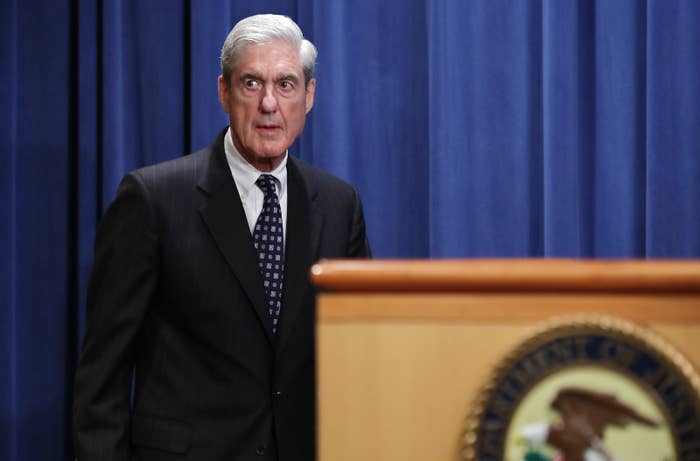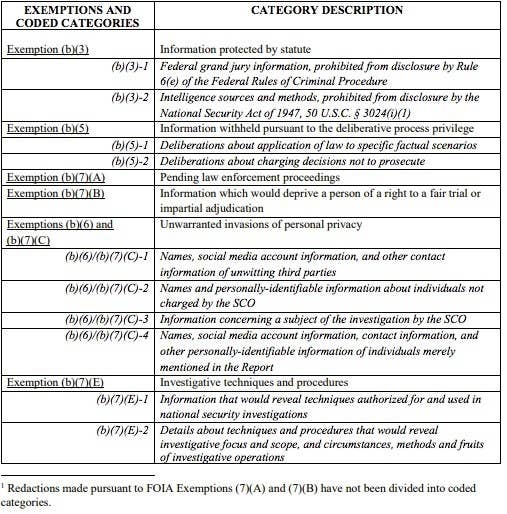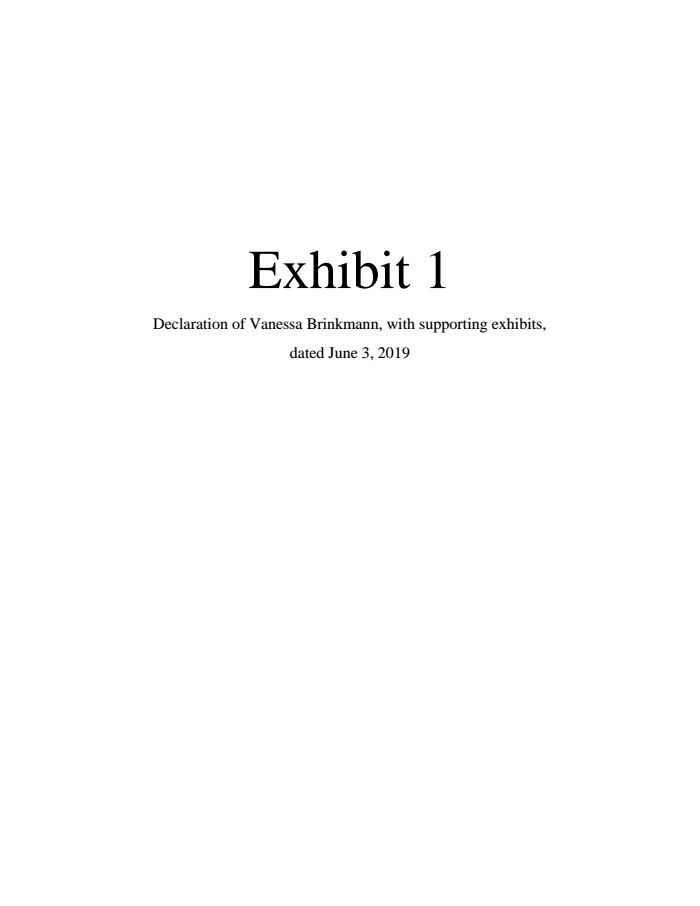
The Department of Justice told a federal court judge that it cannot disclose any redacted parts of special counsel Robert Mueller’s report without harming ongoing national security investigations and other sensitive matters.
BuzzFeed News and the advocacy group Electronic Privacy Information Center are suing the government for the full report into Russian meddling in the 2016 presidential election, including the passages of the report that were blacked out when Attorney General William Barr released it to the public on April 18. (In addition, BuzzFeed News filed separate lawsuits for other documents from the special counsel’s office.)
Last month, in response to those lawsuits, the Justice Department was compelled to release a new version of Mueller’s report, one that is aligned with FOIA’s nine exemptions. Each of those exemptions spell out the type of information the government can withhold and the harm that would result if the information as disclosed.
A 47-page declaration, submitted by Justice Department attorney Vanessa Brinkmann and filed in US District Court Monday night, sheds new light about details hidden behind the redactions. For instance, the government has refused to identify some of the Facebook groups used by Russian officials to push propaganda during the campaign. If the government released the names of the groups, the new declaration argued, it would unfairly out unsuspecting Americans who joined the groups and were tricked by Russia’s effort.
Brinkmann also wrote that in a handful of cases, the Justice Department had previously cited the wrong reasons for redactions in Mueller’s original report. Those passages remain blacked out, but the exemptions supporting them have changed.
The government also told the court that parts of the document must remain secret to protect ongoing criminal and national security investigations and internal discussions by Mueller’s team. Those discussions offer “detailed explanations of the basis for the decisions made by the Special Counsel to pursue indictments in some instances, and not to pursue charges in others.”

“These explanations include analysis of the facts gathered,” Brinkmann wrote, “evaluations of the weight of evidence, and assessment of the law in relation to evidentiary facts, which led to the conclusions reached by the Special Counsel.”
The department noted that although Mueller’s investigation is complete, the Justice Department’s national security division, the FBI, and the intelligence community are all still working on related inquiries.
In the court papers filed Monday night, the Justice Department asked US District Court Judge Reggie Walton to find in favor of the government that its redactions are justified. BuzzFeed News and the Electronic Privacy Information Center will have an opportunity to respond to the government's assertions. A hearing in the case is scheduled for later this summer.
CORRECTION
Vanessa Brinkmann’s name was misspelled in an earlier version of this post.


